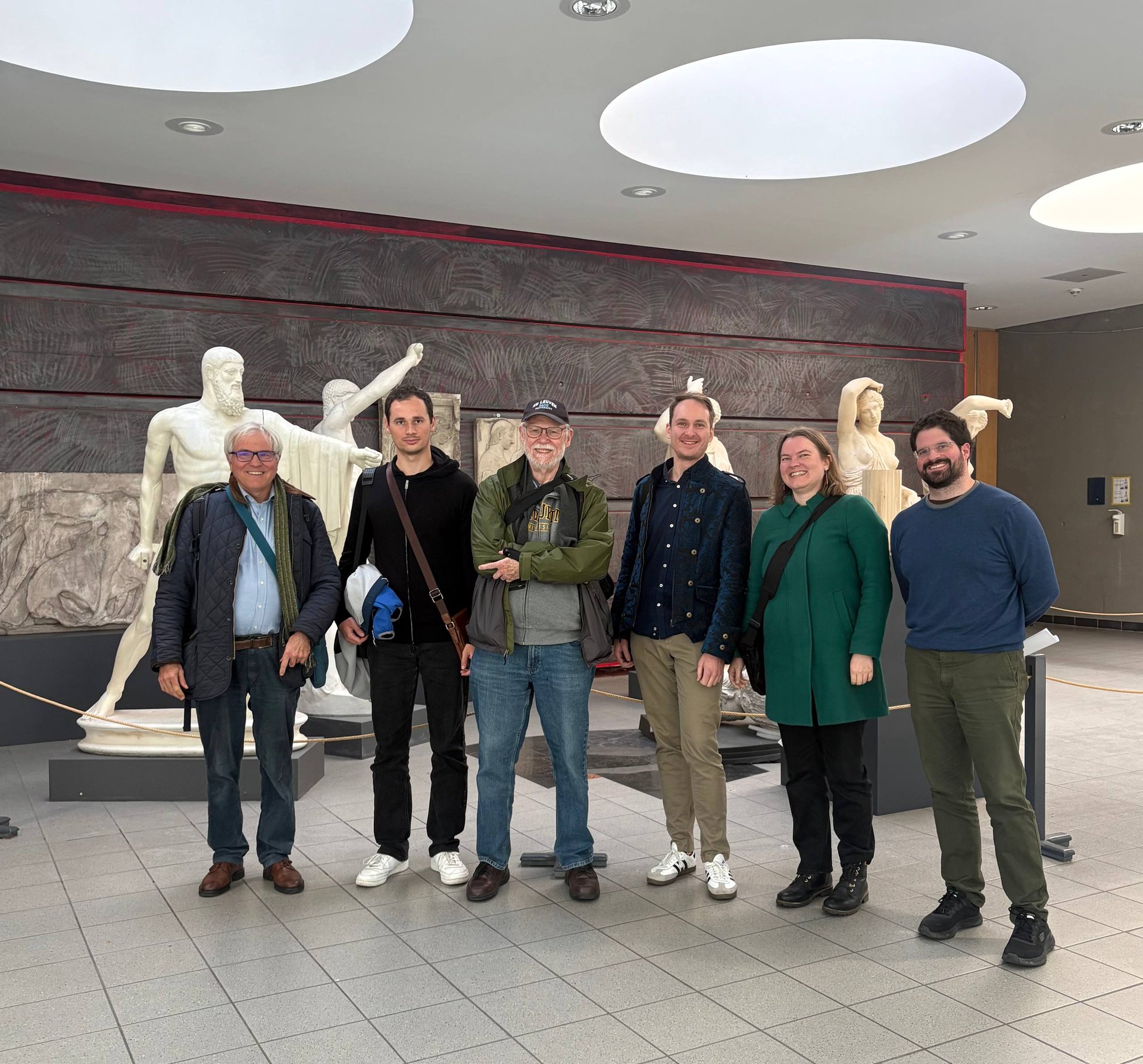Guest lecture and Master class with Professor Richard Taylor (Marquette / Leuven)
On 20 and 21 October 2025, Professor Richard Taylor visited our Research Training Group. His work has ranged from the Greek philosophical tradition and the entré of philosophy into the lands of Islam in the 9th century in the Plotiniana Arabica and the Discourse on the Pure Good (Latin: Liber de causis), through the classical rationalist tradition of al-Farabi, Avicenna, and especially Averroes, to the influence of these writings in Latin on the thought of Thomas Aquinas and his teacher Albert the Great in the 13th century. He is active as director of the Aquinas and the Arabs International Working Group since its inception in 2005 and founding editor of the Brepols series Philosophy in the Abrahamic Traditions of the Middle Ages.
On the first day of his visit, Professor Taylor gave a lecture entitled The Value of the Arabic Philosophical Tradition for the Thought of Thomas Aquinas. First, he provided an overview of the translation campaigns undertaken in Toledo and Sicily, which had made important Arabic texts, such as the works by Avicenna and Averroes, available in Latin, and therefore accessible to the leading intellectuals of the Latin West at the time. Later on, Professor Taylor showed how certain misreadings of Averroes by Albert the Great had created an original interpretation of Arabic thought in the Latin philosophical context, eventually posing a challenge for Albert’s talented student, Thomas Aquinas. The topics touched upon during the lecture included the problems of the afterlife, the unity of the intellect, and the human knowledge of God through philosophical and theological approaches.
The following day, Professor Taylor led a text seminar on Ibn Rushd, Averroes, Albert the Great and Averroism. He offered a close contextual reading of passages in Arabic (when preserved) and Latin from Averroes and Albert, which concern the problem of the afterlife. The notion of bi-’akhiratin (afterwards), its Latin rendering as in postremo, Albert’s interpretation of it as the afterlife in his treatise De homine, and his later account in Super Ethica were carefully examined. The encouraging atmosphere of the seminar stimulated interesting questions and lively discussions, which also brought up such matters as Averroes’ epistemology, the problem of the eternity of the world, and the roles of philosophy and religion in the society.
We are very grateful to Professor Taylor for this encounter full of curiosity, strive for learning and intellectual exchange, thus we hope for the future continuation of this collaboration.
